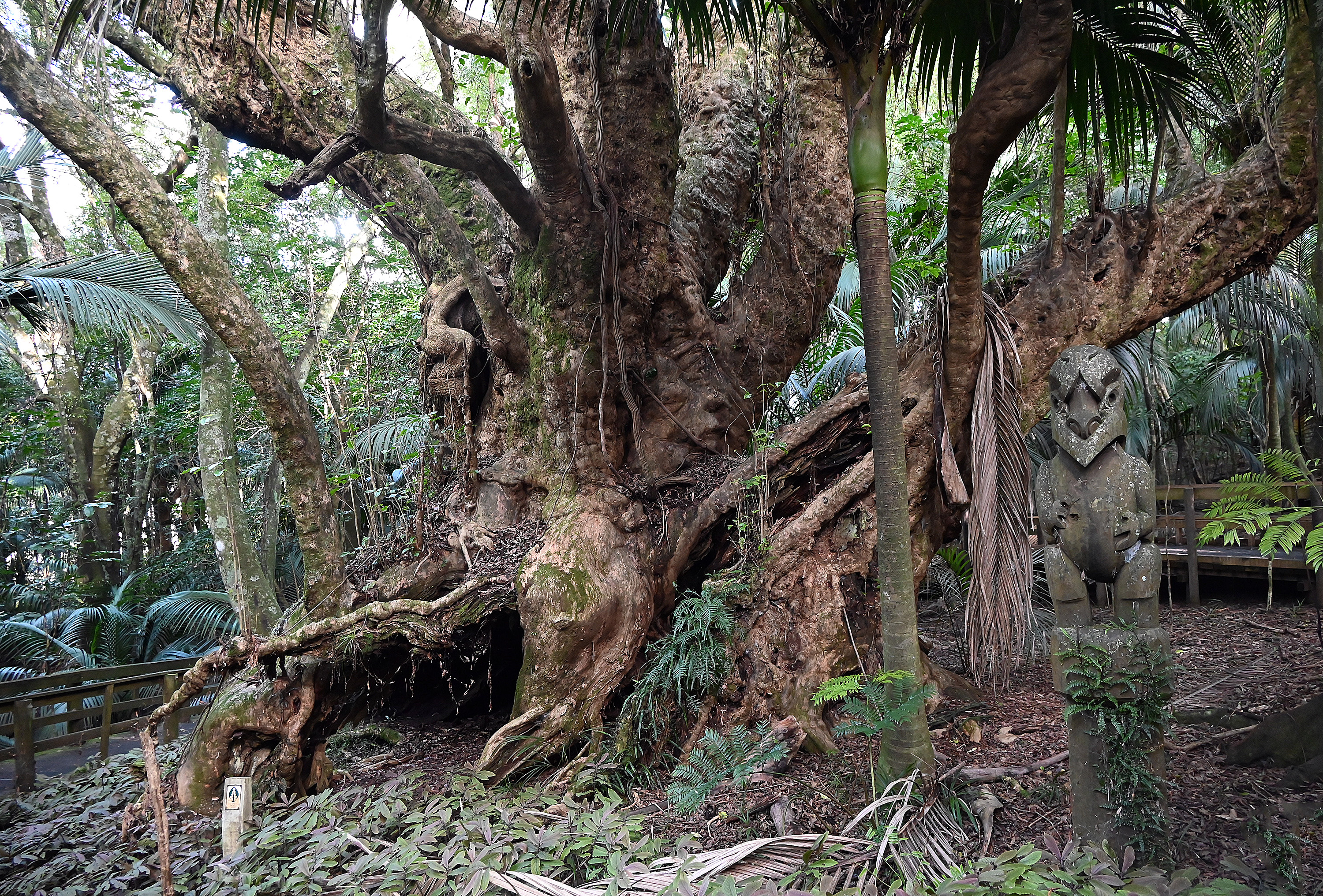Seeing the bush at night

OLD TIMER: The 2000 to 2500-year-old giant puriri tree deep within the forest was once this hollow tree was a resting place for the bones of distinguished dead.
Paul Charman
Seldom-seen insects and invertebrates will crawl forth to meet those brave enough to enter a stand of pristine bush after dark on Tuesday (June 17).
The guided walk will be between 7pm and 9pm at Hukutaia Domain, a 4.5-hectare remnant of native forest about 8 kilometres from Ōpōtiki.
Participants are to meet up ahead of the walk in the domain car park.
“This bush is unusual in that rather than being logged it was set aside as a reserve in the early 1900s and has been popular with tourists and locals ever since,” Hukutaia Domain leader Kay McLeod said.
“Night walkers will need a torch and warm clothing, but the tracks to be used will be easy, so not requiring tramping gear to walk them. If only a few come, we’ll have just a single group and split into two if we get a lot.
“Winter is a great time to visit, both day and night, but visiting in the evening particularly is a fascinating experience. We hope to see weta, peripatus and other small creatures which are generally seen in the bush only after dark.
Of particular interest would be the 2000 to 2500-year-old giant puriri tree deep within the forest. Once this hollow tree was a resting place for the bones of distinguished dead of Te Ūpokorehe and though the remains were removed long ago, the tree, named Taketakerau remains tapu.
“The domain is owned by the Ōpōtiki District Council, part of the Whakatōhea Treaty settlement it is returning to Whakatōhea.
“The Hukutaia Domain Care Group looks after the bush, doing regular maintenance, pest control and development work with help from the Council and the Bay of Plenty Regional Council."
On Wednesday morning the care group will take children from Woodlands School on a guided walk around the domain.
A long-dead kauri tree at the domain entrance will be felled.
“We don’t know exactly what day the tree is coming down but the weather needs to be dry, so maybe it won’t tie in with the school visit. It was tested for kauri dieback, but no evidence was found,” Ms McLeod said.
